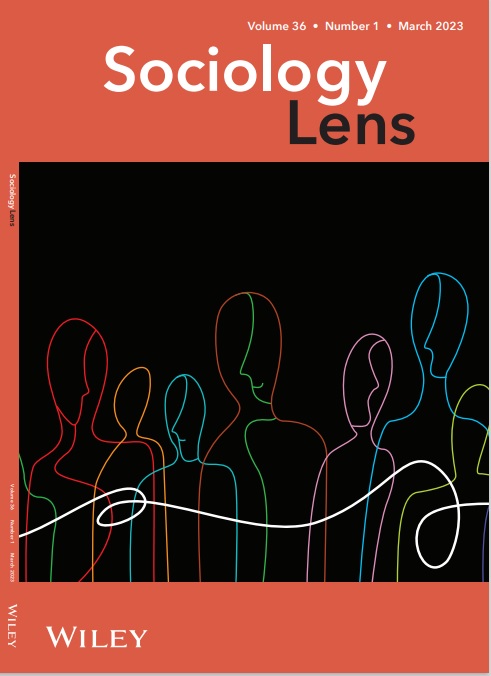Sociology Lens: new brand for the Journal of Historical Sociology

We are excited to announce that from January 2023 Sociology Lens will be the new name and brand for the Journal of Historical Sociology.
Sociology Lens is the new name and brand for the Journal of Historical Sociology which was founded in 1988. Sociology Lens builds upon the legacy of Journal of Historical Sociology, founded on the conviction that historical and social studies ultimately have a common subject matter and can only benefit from the interchange of ideas and perspectives. The journal aims to provoke discussion and debate about important issues facing society today, acknowledging that we must often to look to the past in order to inform our understanding of contemporary structures and thinking.
Sociology Lens welcomes high-quality research that investigates society through multiple temporal and disciplinary frames, to link the past, present and future of sociology.
Sociology Lens welcomes submissions from young authors and those who have not been published before, alongside contributions from established researchers. The journal is interdisciplinary in its approach, with an editorial board of distinguished historians, anthropologists, geographers and sociologists. The journal is broad in scope, encouraging submissions of empirical, theoretical, and methodological articles across the full spectrum of sociology.
Papers with a visual and media focus are encouraged. We welcome creative works (please contact the editor). Replication studies and confirmatory work may also be considered following consultation with the editor.
Special Issues should be discussed with the editor: editor@jhist.net
Look out for our first Sociology Lens special issue in March 2023, entitled Carceral Edgelands guest edited by Dr Craig Campbell, Department of Anthropology, University of Texas, Austin:
This special issue is inspired by a project by the Bureau for Experimental Ethnography and artist curators Cassils and rafa esparza, In Plain Sight: Fields of Vision, concerned with the politics and aesthetics of immigrant detention. The project is explicitly committed to fighting US cultures of incarceration and to the abolishment of immigrant detention. In Plain Sight: Fields of Vision is driven by a fascination with the ways in which immigrants disappear into the bureaucratic-carceral apparatus, tracing routes across the USA from the southern border—the principal site of immigrant visibility in popular media. The invisibility, in plain sight, is the dire object of artistic and activist frustration. This special issue, Carceral Edgelands, seeks to understand the infrastructures of ignorance that contribute to and compound this invisibility.
Keep an eye on the journal website and on @WileySociology for more announcements, new articles, and calls for special issues!
Sociology Lens is edited by Yoke-Sum Wong, Associate Professor, Alberta University of the Arts, Calgary Ab, Canada







